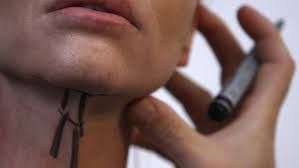Bullied Teen Gets Plastic Surgery For Free; Nonprofit Pays For Nose Job, Chin Tuck

When the constant bullying a 15-year-old from South Carolina was subject to refused to let up, she and her family decided on a drastic step to help regain her confidence. Renata and her mother Michelle, who asked to have their last names withheld, settled on plastic surgery to help “balance out her face” after kids at school settled on the cruel nickname, “the girl with the big nose.”
At school, Renata became a favorite target for bullies who tormented her because of what they saw as distorted facial features. The bullying she was experiencing got so bad that her mother started to home-school her three years ago. Thanks to the Little Baby Face Foundation, a nonprofit organization based in New York that finances plastic surgery for children with physical deformities, she is on the verge of returning to school and getting on with a normal life.
Director of the Little Baby Face Foundation, Dr. Thomas Romo, diagnosed Renata with hemifacial microsomia, a condition that results in an undeveloped portion of the face. According to Seattle Children’s Hospital, hemifacial microsomia is the second most common facial birth defect, affecting one out of every 5,000 children. This disorder is not passed from parent to child, and a couple who has given birth to a child with hemifacial miscrosomia stands a three percent chance of having a second child with the condition.
In addition to a brand new nose, Romo also offered Renata a new chin to help “balance out her face.” Renata and her mother accepted the new chin and the Little Baby Face Foundation picked up the tab for the $7,000 bill for the procedure. A couple of months following the surgery, Renata is ready to return to school and show off her new look to her former tormentors.
While plastic surgery for bullied teens is generally frowned upon, Romo says changing a person’s outer appearance can help change their life. On the other hand, the foundation does not offer financial assistance for teenagers looking to enhance their facial features for “cosmetic” reasons. Health care professionals make it a point to regard plastic surgery as an “extreme” decision for a child and that this decision may not remedy every problem they face.
“You take a child, and you change the way they look. To anybody who sees them, they’re good-looking,” Romo told NBC News. “That gives the child strength. We can’t go after the bully. But we can try and empower the children.”
Today, Renata is feeling confident and ready to return to school. Before going in for her procedure, Renata saw a counselor who did not agree with her decision to assess her mental health. The counselor eventually sided with Renata and her mother, agreeing the surgery to correct her appearance could also affect her self-assurance.



























